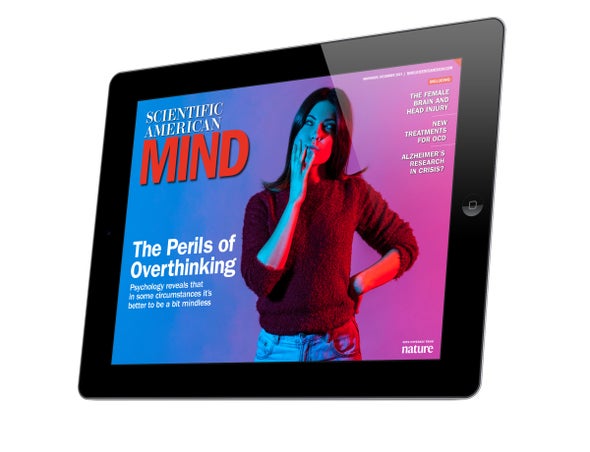In 2017 Scientific American published an important article by Stanford University professor of medicine Marcia L. Stefanick that detailed all the ways modern medicine has failed women—namely, by basing their care on research findings gathered predominately on men and men alone. To be sure, improvements have been made to treating women in cardiovascular health, mental health care and prescription dosing, but much research on women’s health is still in early days. In this issue, journalist Katharine Sanderson covers the latest example of this discrepancy: head injury (see “Why Sports Concussions Are Worse for Women”). There’s no denying now that equality in medical research would be a great way to start leveling the playing field.
Our cover story this month explores the intriguing effects that automaticity—that is, mindless activity—can have on mental and physical performance (see “Sometimes Mindlessness Is Better Than Mindfulness”). As environmental anthropologist Peter Sutoris writes in Opinion, our hyperconsumeristic culture prizes productivity above all else (see “To Solve the Environmental Crisis, We Must Foster the Power to Imagine”). It may be that easing up on our relentless concentration and letting the mind wander may have benefits that go beyond an individual’s scope.



